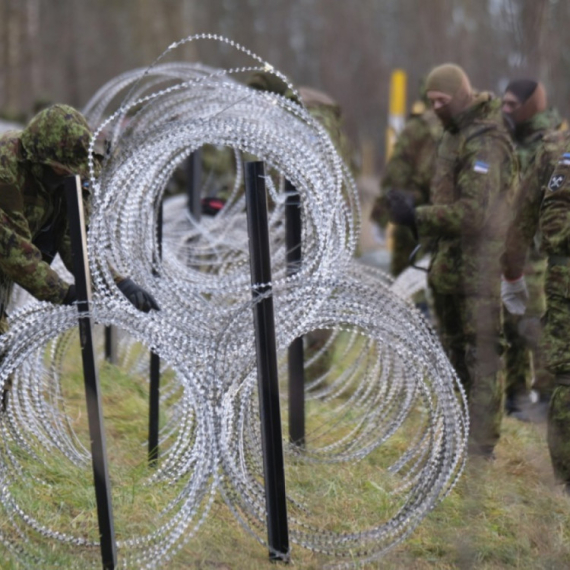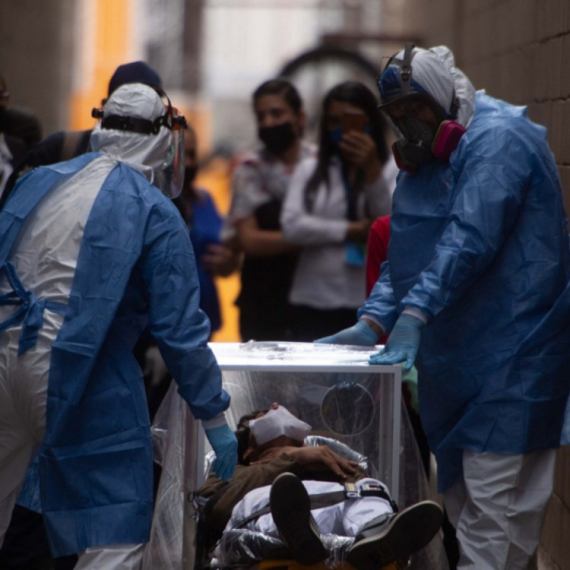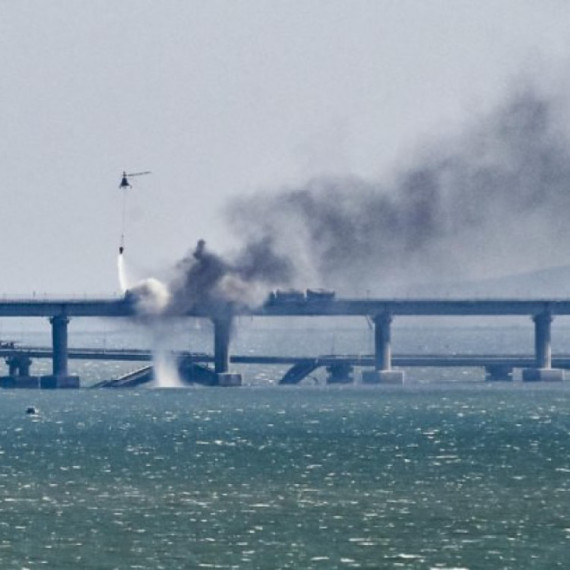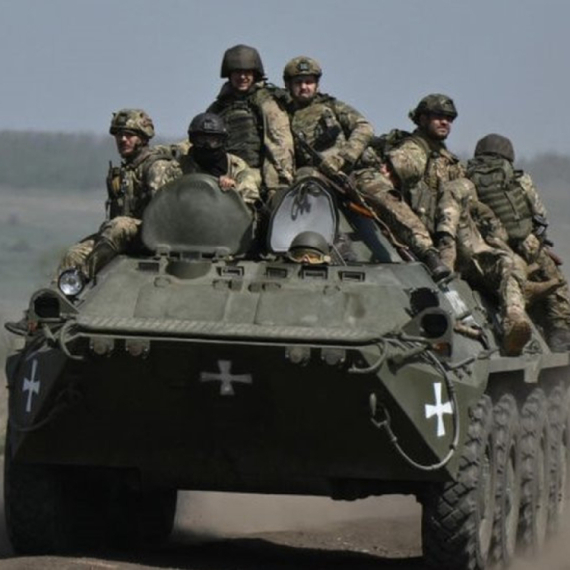Verdicts due for Madrid terror attack
A Spanish court is due to deliver verdicts in the trial of 28 men charged with the deadliest al Qaeda attack in Europe.
Sunday, 28.10.2007.
10:54

A Spanish court is due to deliver verdicts in the trial of 28 men charged with the deadliest al Qaeda attack in Europe. The case concerns the Madrid train bombings which killed 191 people on March 11, 2004. Verdicts due for Madrid terror attack The court will also issue sentences when it announces its verdicts on Wednesday, in front of the bullet-proof box which held the accused, mostly Moroccans but also including nine Spaniards, during over four months of trial earlier this year. Six of the men could be given up to 38,000 years in prison for the 10 near-simultaneous bombings on four trains taking morning commuters into Madrid, although in practice they cannot serve more than 40 years. A shining glass monument inscribed with names of the dead, many poor migrants from Romania and Latin America, now stands by Madrid's Atocha train station, whose tracks were littered with body parts on that cool, sunny morning. The attacks convulsed Spanish politics, causing a surprise defeat in elections three days later for the then conservative government which had led Spain into the unpopular war in Iraq, and tried to blame the attacks on Basque separatists. But the trial demonstrated Islamist attacks had been coming whether Spain sent troops to Iraq or not, according to Fernando Reinares, from Madrid's Real Elcano thinktank. "The context of the war in Iraq favored attacks, but the decision to attack Spain had been taken earlier," Reinares said. He pointed to a "colossal failure" by Spain's intelligence services, who had been monitoring several of the men now awaiting verdicts. "Spain is still a target for al Qaeda," Reinares said, although its security services are now better prepared, having switched resources from the fight against Basque guerrillas ETA. All the accused, including three alleged masterminds and others who apparently placed bombs, pleaded not guilty of the plot investigators believe was inspired if not necessarily directly organized by al Qaeda. An alleged ringleader, Rabei Osman el-Sayed, known as "the Egyptian", condemned the attacks in court. He said a bugged conversation in which he apparently called the bombers "friends" was misunderstood. "He has a clear conscience because he is innocent," said Osman's lawyer, Endika Zulueta, adding his client was anxious leading up to the decisions by the three trial judges. The trial itself was dominated by speculation, particularly in media favoring the conservative Popular Party, that ETA was somehow linked to the bombings. A defense lawyer even suggested ETA had been involved in the attack against New York's World Trade Center in 1993. The train blasts changed life for Spain's growing Muslim community, which hardly existed a decade ago but now numbers up to a million. "Arabs in Spain became suspects," said Mohamed Alfifi, spokesman for Madrid's largest mosque, where several of the accused used to pray. There was no violent backlash, but the difference is still felt, he said. "If a Muslim, an Eastern European and a Latin American immigrant apply for the same job, the Muslim is last in line," he said. While some may await the verdicts with foreboding, others seek closure, such as Angeles Pedraza, who lost her 25-year-old daughter in the blasts. "She and her husband had bought a house and they were going to celebrate in London, they had plane tickets for that day," Pedraza said. "They wanted to take advantage of the time they had to travel, because they wanted a baby soon," she said. "She was full of life and optimism."
Verdicts due for Madrid terror attack
The court will also issue sentences when it announces its verdicts on Wednesday, in front of the bullet-proof box which held the accused, mostly Moroccans but also including nine Spaniards, during over four months of trial earlier this year.Six of the men could be given up to 38,000 years in prison for the 10 near-simultaneous bombings on four trains taking morning commuters into Madrid, although in practice they cannot serve more than 40 years.
A shining glass monument inscribed with names of the dead, many poor migrants from Romania and Latin America, now stands by Madrid's Atocha train station, whose tracks were littered with body parts on that cool, sunny morning.
The attacks convulsed Spanish politics, causing a surprise defeat in elections three days later for the then conservative government which had led Spain into the unpopular war in Iraq, and tried to blame the attacks on Basque separatists.
But the trial demonstrated Islamist attacks had been coming whether Spain sent troops to Iraq or not, according to Fernando Reinares, from Madrid's Real Elcano thinktank.
"The context of the war in Iraq favored attacks, but the decision to attack Spain had been taken earlier," Reinares said.
He pointed to a "colossal failure" by Spain's intelligence services, who had been monitoring several of the men now awaiting verdicts.
"Spain is still a target for al Qaeda," Reinares said, although its security services are now better prepared, having switched resources from the fight against Basque guerrillas ETA.
All the accused, including three alleged masterminds and others who apparently placed bombs, pleaded not guilty of the plot investigators believe was inspired if not necessarily directly organized by al Qaeda.
An alleged ringleader, Rabei Osman el-Sayed, known as "the Egyptian", condemned the attacks in court. He said a bugged conversation in which he apparently called the bombers "friends" was misunderstood.
"He has a clear conscience because he is innocent," said Osman's lawyer, Endika Zulueta, adding his client was anxious leading up to the decisions by the three trial judges.
The trial itself was dominated by speculation, particularly in media favoring the conservative Popular Party, that ETA was somehow linked to the bombings. A defense lawyer even suggested ETA had been involved in the attack against New York's World Trade Center in 1993.
The train blasts changed life for Spain's growing Muslim community, which hardly existed a decade ago but now numbers up to a million.
"Arabs in Spain became suspects," said Mohamed Alfifi, spokesman for Madrid's largest mosque, where several of the accused used to pray.
There was no violent backlash, but the difference is still felt, he said.
"If a Muslim, an Eastern European and a Latin American immigrant apply for the same job, the Muslim is last in line," he said.
While some may await the verdicts with foreboding, others seek closure, such as Angeles Pedraza, who lost her 25-year-old daughter in the blasts.
"She and her husband had bought a house and they were going to celebrate in London, they had plane tickets for that day," Pedraza said.
"They wanted to take advantage of the time they had to travel, because they wanted a baby soon," she said. "She was full of life and optimism."

























































Komentari 0